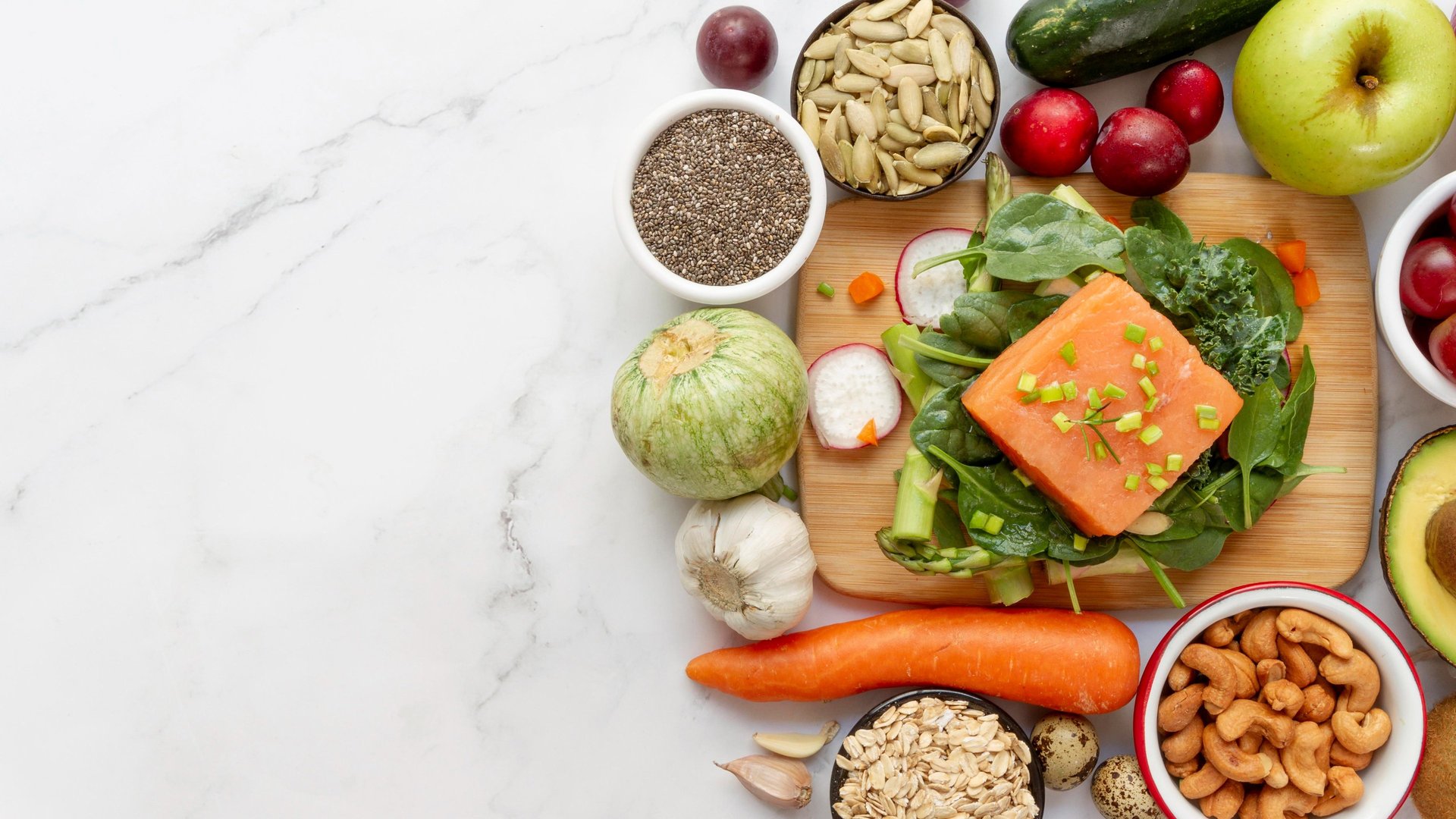✨ Welcome to Glow Mindset! Your ultimate hub for Health & Wellness tips. Explore now and start your journey to a better you! 🌱

Nourish Your Body: Essential Nutrition Tips for a Healthier Life
In a world where processed foods and quick meals are often the go-to choices, maintaining a healthy diet can sometimes feel like a challenge. However, the foundation of good health starts with the food we put into our bodies. Proper nutrition is essential for not only keeping our body functioning well but also for enhancing our energy, mood, and overall well-being.
The good news is that making simple changes to your diet can have a profound impact on your health. This blog will explore the essential principles of nutrition and how small changes in your eating habits can lead to big improvements in your life.
The Importance of Balanced Nutrition
A balanced diet consists of a variety of foods from all the food groups, providing the necessary nutrients to maintain optimal health. These nutrients include carbohydrates, proteins, fats, vitamins, and minerals, each playing a unique role in our body’s functioning.
Carbohydrates are the body's primary energy source. Opt for complex carbohydrates such as whole grains, fruits, and vegetables, which are packed with fiber and help maintain stable blood sugar levels.
Proteins are the building blocks of muscle and tissue. Choose lean proteins like chicken, fish, legumes, and plant-based sources such as tofu and quinoa to support muscle growth and repair.
Healthy Fats are vital for brain health and hormone production. Incorporate sources of healthy fats, such as avocados, olive oil, nuts, and seeds, into your meals.
Vitamins and Minerals help with immunity, energy production, and overall health. Include a variety of colorful fruits and vegetables in your diet to ensure you’re getting a broad range of nutrients.
Hydration: The Overlooked Element
Water is often overlooked, but hydration is just as important as food when it comes to maintaining a healthy lifestyle. Staying hydrated aids digestion, keeps your skin healthy, and ensures that your organs function optimally.
Aim to drink at least 8 glasses (2 liters) of water a day, more if you're active or live in a hot climate.
Herbal teas, fruits, and vegetables such as cucumbers and watermelon are also great sources of hydration.
How to Build a Healthy Meal Plan
Planning your meals can be one of the easiest ways to ensure you’re eating a balanced diet. A well-structured meal plan takes the guesswork out of eating and can save you time and energy during the week.
Start by choosing whole, unprocessed foods whenever possible. Fill your plate with colorful vegetables, lean proteins, whole grains, and healthy fats. A good rule of thumb is to aim for a plate that is half vegetables, a quarter protein, and a quarter complex carbohydrates. This ensures you're getting all the nutrients your body needs in the right proportions.
Here’s a simple breakdown of a healthy meal:
Breakfast: Start your day with protein and fiber, like oatmeal topped with chia seeds, walnuts, and a handful of berries, or scrambled eggs with spinach and avocado.
Lunch: A salad with mixed greens, grilled chicken, quinoa, chickpeas, and a drizzle of olive oil and lemon juice makes for a nutrient-dense meal.
Dinner: Try a plate with roasted vegetables, grilled salmon, and a side of brown rice or sweet potatoes for a balanced meal that supports muscle recovery.
The Role of Supplements in a Healthy Diet
While a balanced diet should provide most of the nutrients you need, sometimes supplements can help fill in the gaps. Supplements such as vitamin D, omega-3 fatty acids, and probiotics can support your health, particularly if you have specific dietary restrictions or health concerns.
Before adding any supplements, it's essential to speak with a healthcare provider to ensure they’re safe and necessary for your individual needs.
Healthy Eating Habits to Incorporate into Your Life
Eat Mindfully: Take time to enjoy your food. Slow down and savor each bite, which can help with digestion and prevent overeating.
Snack Wisely: Choose healthy snacks like fruits, nuts, yogurt, or hummus with veggies to curb hunger between meals while nourishing your body.
Portion Control: Being mindful of portion sizes is key to maintaining a healthy weight and avoiding overeating. Using smaller plates and practicing portion control can help.
Limit Processed Foods: Aim to reduce your intake of processed foods, sugary drinks, and excessive salt, as these can lead to weight gain and various health issues in the long run.
The Impact of Nutrition on Mental Health
It’s not just your body that benefits from good nutrition — your mind does too. Research has shown that a balanced diet can positively affect mental health, improving mood, reducing anxiety, and boosting cognitive function.
Nutrient-rich foods like fatty fish, leafy greens, berries, and fermented foods support brain health and can help maintain focus, reduce stress, and improve overall mental well-being.
Final Thoughts: Nourish Your Body, Nourish Your Life
Nutrition is a powerful tool in enhancing your overall health. By making conscious decisions about what you eat, you can improve not just your physical health, but also your mental well-being and energy levels. Remember, small changes over time can lead to significant improvements, and the key to a healthier life is consistency.
Start by integrating more whole foods, healthy fats, and lean proteins into your diet, and see how your body responds. Hydrate regularly, eat mindfully, and consider the benefits of adding supplements as needed. With the right nutrition, you’ll be on your way to living a healthier, happier life.
+212 680-929 468
contact@glowmindset.com
Subscribe to our newsletter
Inspiration
Empower your mind, uplift your spirit, and discover the strength within to thrive every day ✨
Glow Mindset
© 2024 All rights reserved


